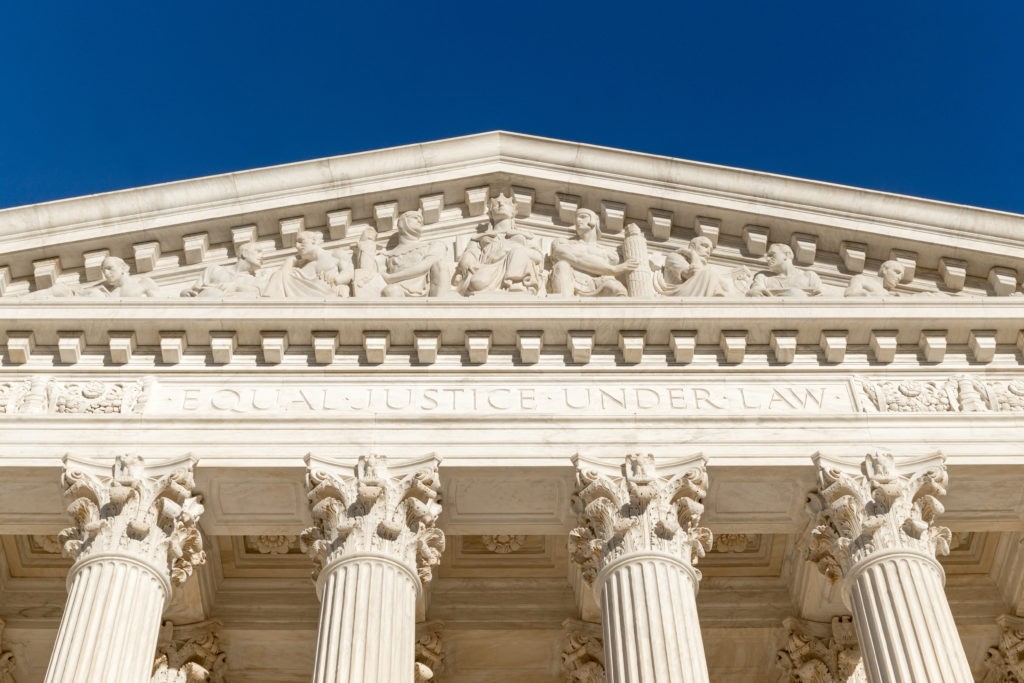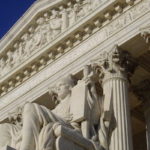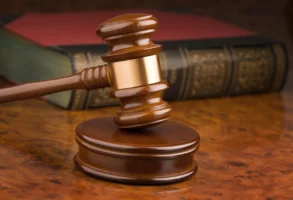
Published September 30, 2021
In a Wall Street Journal op-ed today, my friend Hadley Arkes argues for what he labels a “better originalism” in place of the “truncated originalism” that “has predominated” among legal conservatives. That dominant originalism, he contends, is “detached from the understanding that the American Founders, the true originalists, had of the moral ground of the Constitution and laws they were shaping.”
There is plenty of room for methodological disputes within originalism, and what originalist could oppose a “better originalism”? But Arkes’s critique of the dominant originalism is unpersuasive, and I can’t discern what his “better” alternative actually entails.
1. Let’s start with the straw-man argument that lies at the core of Arkes’s piece. Arkes would have you think that the dominant originalist case against Roe v. Wade is that “abortion is nowhere mentioned in the Constitution.” Repeating the same charge, he alleges that the dissents of Justice White and Justice Rehnquist in Roe “were content to rely on the point that abortion was nowhere mentioned in the Constitution.” This charge is patently false.
The originalist case against Roe rests heavily on (as Mississippi puts it in its brief in Dobbs v. Jackson Women’s Health Organization) “text, structure, history, [and] tradition.” A central part of the case has always been that many states, recognizing the child in the womb as a human being worthy of protection, broadly prohibited abortion at the very time that the Fourteenth Amendment was ratified. I am not aware of any originalist who has ever been “content to rely on the point that abortion was nowhere mentioned in the Constitution.”
In his combined dissent in Roe and in Doe v. Bolton, Justice White (joined by Justice Rehnquist) stated, “I find nothing in the language or history of the Constitution to support the Court’s judgments.” In his dissent in Roe, Rehnquist (joined by White) acknowledged that “the ‘liberty,’ against deprivation of which without due process the Fourteenth Amendment protects, embraces more than the rights found in the Bill of Rights.” In other words, he repudiated the position that the fact that “abortion is nowhere mentioned in the Constitution” resolves the matter. He went on:
But that liberty is not guaranteed absolutely against deprivation, only against deprivation without due process of law….
The fact that a majority of the States reflecting, after all, the majority sentiment in those States, have had restrictions on abortions for at least a century is a strong indication, it seems to me, that the asserted right to an abortion is not ‘so rooted in the traditions and conscience of our people as to be ranked as fundamental’….
To reach its result, the Court necessarily has had to find within the Scope of the Fourteenth Amendment a right that was apparently completely unknown to the drafters of the Amendment. As early as 1821, the first state law dealing directly with abortion was enacted by the Connecticut Legislature. By the time of the adoption of the Fourteenth Amendment in 1868, there were at least 36 laws enacted by state or territorial legislatures limiting abortion. While many States have amended or updated their laws, 21 of the laws on the books in 1868 remain in effect today.
2. I’m unclear on what role Arkes believes the “moral ground of the Constitution” should have in originalist interpretation of the Constitution. The dominant originalist view, as I understand it, is that separation of powers and federalism are part of that “moral ground,” and that the duty of Supreme Court justices is not to indulge their own moral preferences in interpreting the Constitution. Constitutional provisions, of course, might embed moral understandings, and when they do, justices should interpret those provisions consistent with those understandings. If that is all that Arkes means, then we are on the same page.
From my broader understanding of Arkes’s work, I fear, though, that he thinks it proper for justices to impose their own moral readings on the Constitution. There are suggestions to that effect in his op-ed. He, for example, faults Justice Scalia for “steer[ing] around the questions of moral substance at the heart” of Obergefell v. Hodges. Does Arkes believe that the case against judicial invention of a constitutional right to same-sex marriage depends in any way on making a moral argument against same-sex relationships?
For decades now, the Left has argued (often overtly, sometimes covertly) that it is legitimate for justices to impose their own moral readings of the Constitution. Indeed, the case for Roe rests heavily on that proposition. I trust that Arkes would argue that the Left’s moral readings are in many instances unsound. But I don’t see how it is right in principle or—given the massive left-wing bias of the elites from which judges are drawn—beneficial in practice to legitimate the broader practice.
3. A couple minor points, while I’m at it:
As I read Arkes’s critique, it would apply equally against those—most prominently, John Finnis, Michael Paulsen, and Joshua Craddock—who make the originalist case for constitutional personhood, as they undertake to do so using the same originalist methodology that Arkes condemns.
As an ardent critic of Justice Gorsuch’s opinion in Bostock v. Clayton County, I’m sorry to say that Arkes’s own criticism fails to engage with Gorsuch’s actual argument. Arkes seems not to recognize that Gorsuch’s majority opinion “proceed[s] on the assumption that ‘sex’ [in Title VII] … refer[s] only to biological distinctions between male and female.” Thus, it is no answer to Gorsuch, much less the “most decisive[]” answer, to “appeal[] to the meaning of sex that will never change.” The “truncated originalism” (or textualism) in the dissents of Justice Alito and Justice Kavanaugh is far more effective.
Ed Whelan is a Distinguished Senior Fellow of the Ethics and Public Policy Center and holds EPPC’s Antonin Scalia Chair in Constitutional Studies. He is a regular contributor to NRO’s Bench Memos. He is co-editor of The Essential Scalia: On the Constitution, the Courts, and the Rule of Law.
Edward Whelan is a Distinguished Senior Fellow of the Ethics and Public Policy Center and holds EPPC’s Antonin Scalia Chair in Constitutional Studies. He is the longest-serving President in EPPC’s history, having held that position from March 2004 through January 2021.












